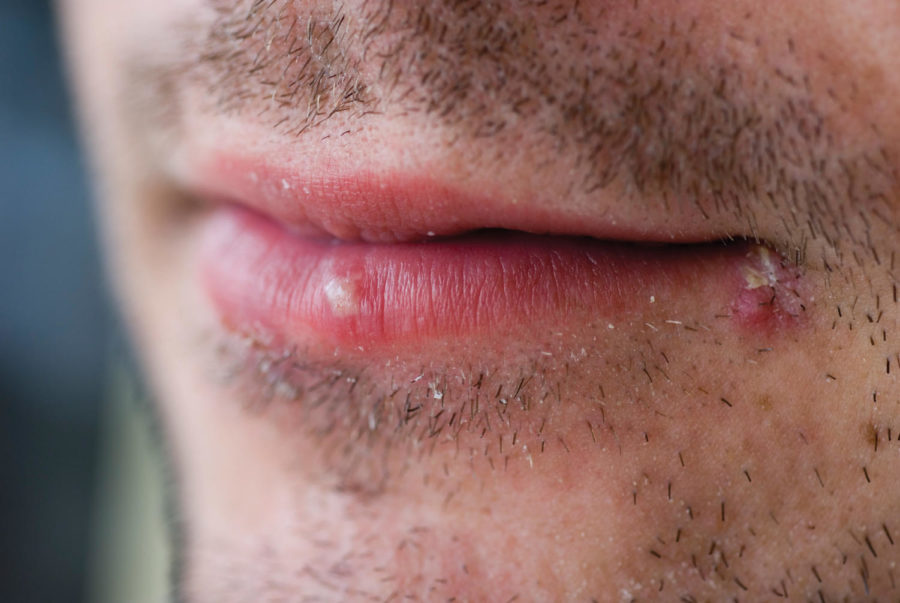Herpes spreads without symptoms
Cold sores (herpes labialis)
February 18, 2013
Even without signs or symptoms, students can still be carriers of genital herpes.
Herpes can be spread 10 percent of the time without symptoms, according to a recent study by the Journal of the American Medical Association.
“Knowing that not all people know they are infected makes me worried; more people should definitely get tested,” said Kayla Zumbach, sophomore in pre-journalism and mass communication.
Herpes is a commonly transmitted disease caused by the herpes simplex virus.
According to the American Sexual Health Association, it is estimated that one in six adults in the United States is infected. Many people have no symptoms and do not realize they are infected or could pass it along.
There are two types of infection. Type II, which is genital herpes, and type I, oral herpes, which causes cold sores on the mouth and lips.
“This is important; we see a lot of herpes I here [at the student health center],” said Dr. Cosette Scallon. “If a person has not had cold sores in the past and has oral sex with someone with a cold sore, they can get genital herpes.”
In most cases the first herpes outbreak of sores, blisters and ulcers is the most severe, occurring a few weeks after infection. However, these symptoms do not always show.
“If the affected area is higher in the vagina or cervix in a woman, she may never have any pain, may just have a change in discharge, which could go unnoticed,” Scallon said.
After the initial outbreak, the virus goes to a group of nerves at the base of the spine in a latent stage with occasional outbreaks. The only way to make sure someone does not contract it is to make sure their partner gets tested.
“Asking someone to get tested is not a bad thing,” Zumbach said. “It shouldn’t be an embarrassing topic.”
If symptoms don’t show, there are many ways to be tested for the virus.
Blood tests are used when someone believes they might have the herpes virus, but has no visible signs. This test detects antibodies and a positive result indicates that the person was infected with herpes some time in the past, but they are not usually able to pin point when or from who it was received.
“Many people are positive for herpes type I, perhaps up to 90 percent of the population, so a positive blood test is not always very helpful,” Scallon said.
The results of antibody blood tests may be negative early on during the initial infection, since the formation of antibodies takes a few weeks.
“Sometimes the test is falsely negative,” Scallon said. “So we discourage obtaining the blood test under most circumstances.”
The most sensitive test is the polymerase chain reaction (PCR) test; it identifies the virus in cells and secretions from the urinary and genital tracts.
If someone is aware that they have the herpes virus, treatment needs to be searched for; contrary to popular belief, condoms do not protect you completely from the virus.
“Condoms are not 100 percent [reliable],” Sallon said. “Transmission is skin-to-skin. Since condoms do not protect you 100 percent, it is just another reason testing is best.”
Herpes stays with an individual forever. Once infected, symptoms will reoccur; this is why it is important to stop the spread of the virus by making sure students get tested even if they show no signs.
“Because there is no cure, people should take more precautions,” Zumbach said.
The best prevention of the herpes virus is to raise awareness. Traditional lectures and pamphlets may not be the best way.
“It’s hard to educate people in college because they don’t want to hear about it,” Zumbach said. “The best way to spread the message more would be advertising. It’s hard to miss billboards and signs on the CyRide.”

















